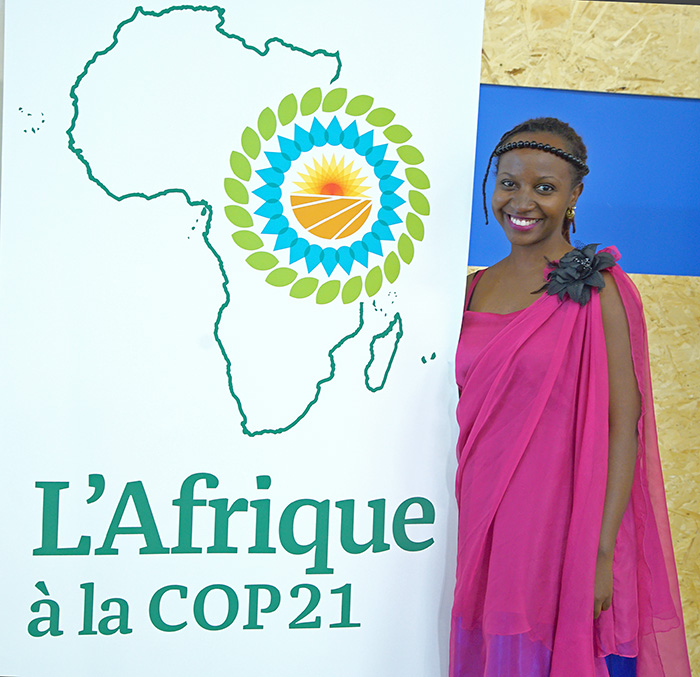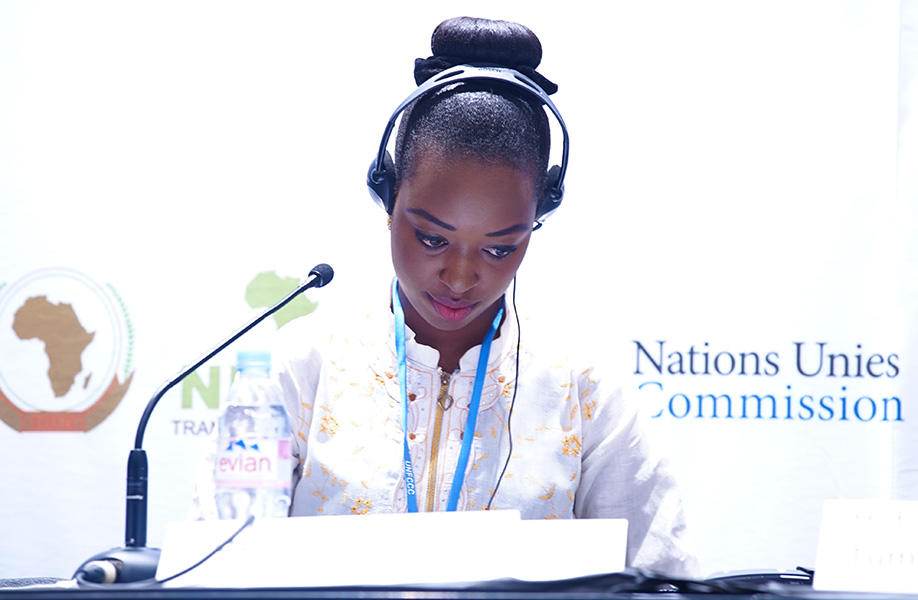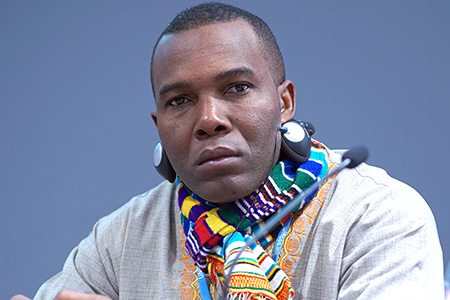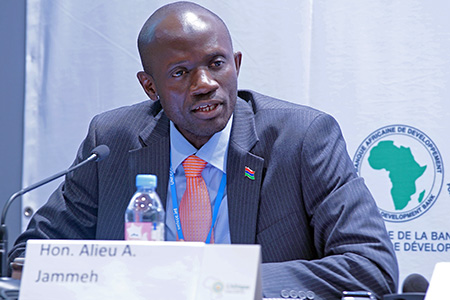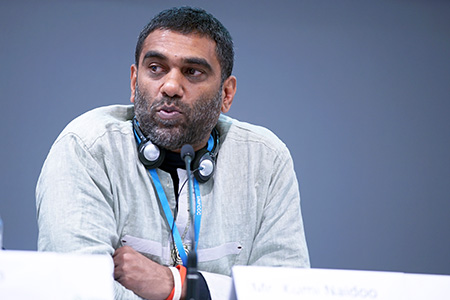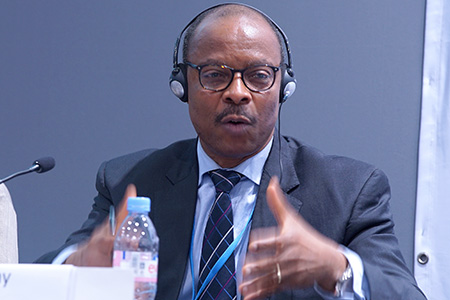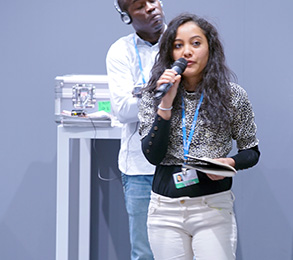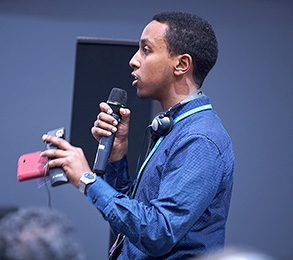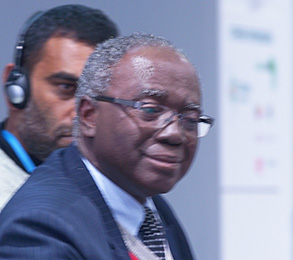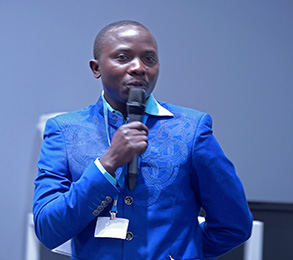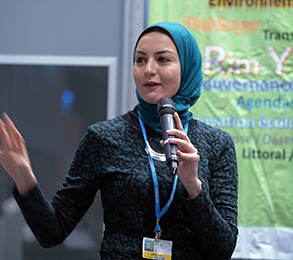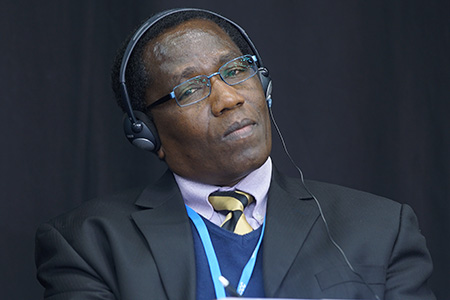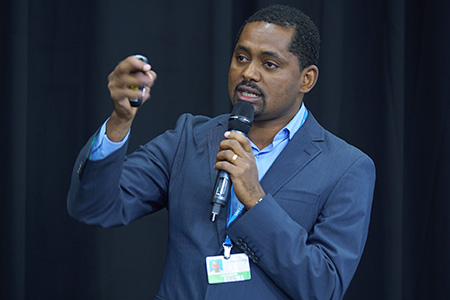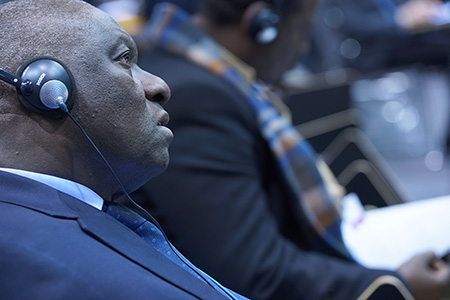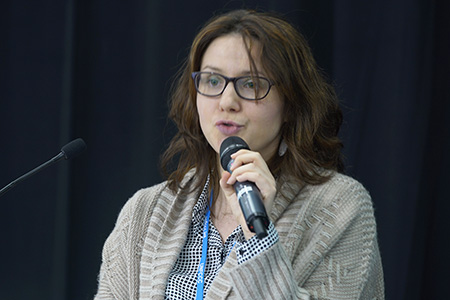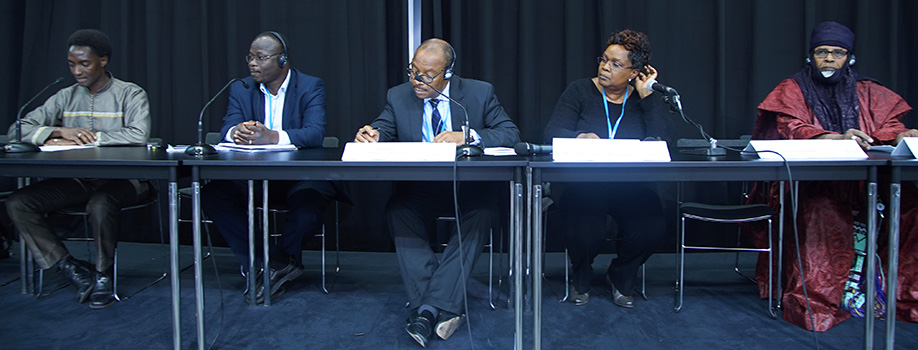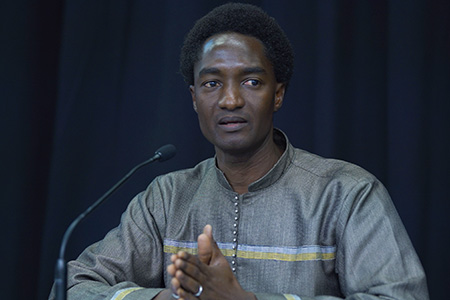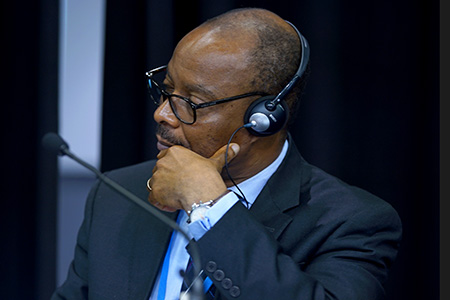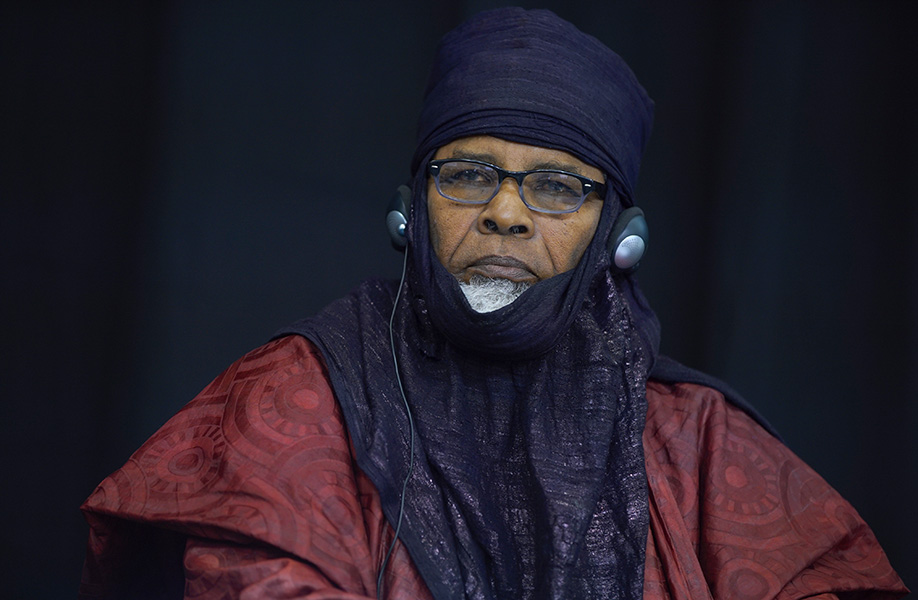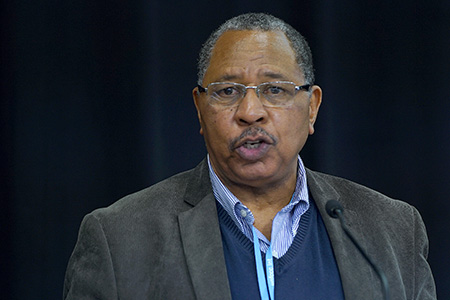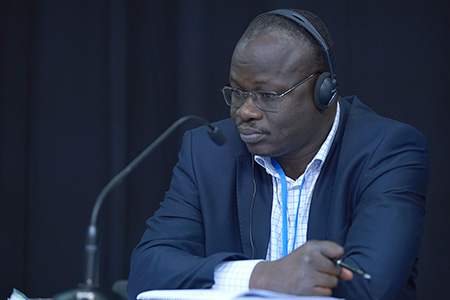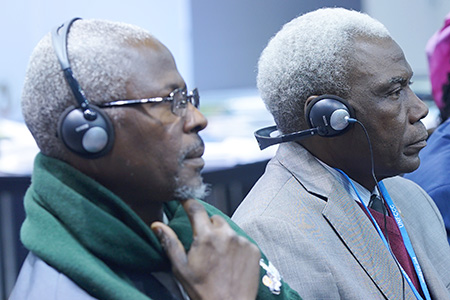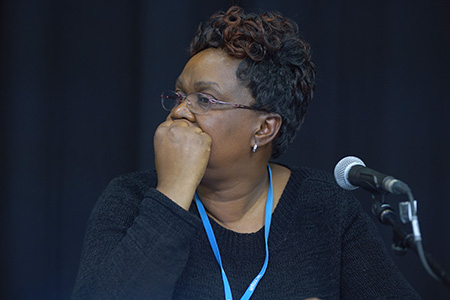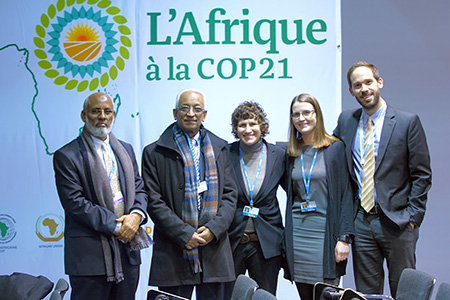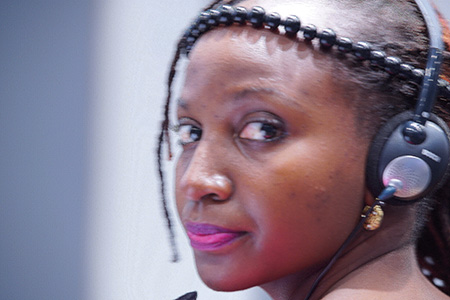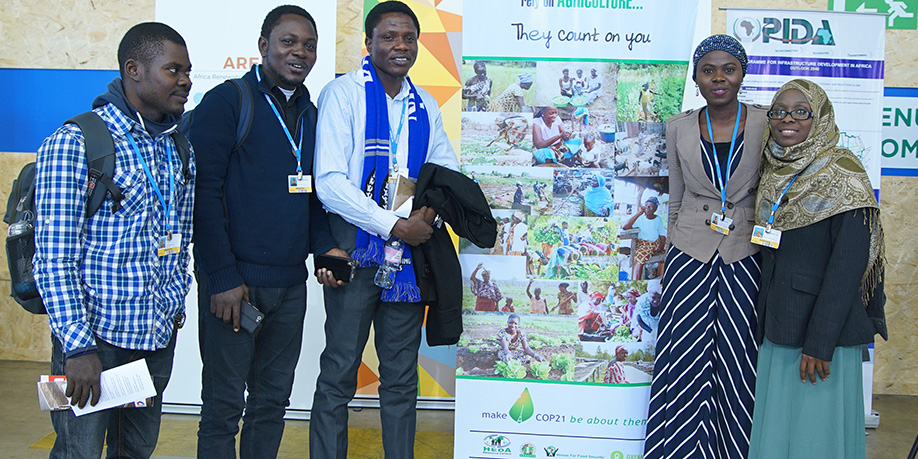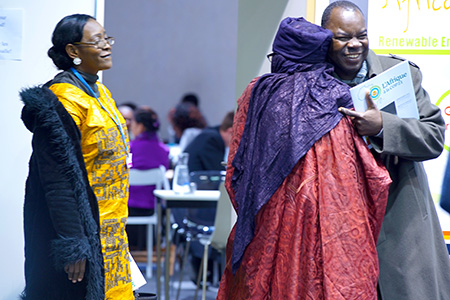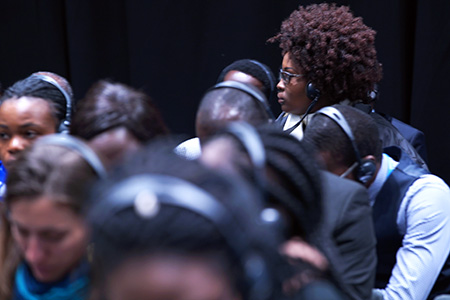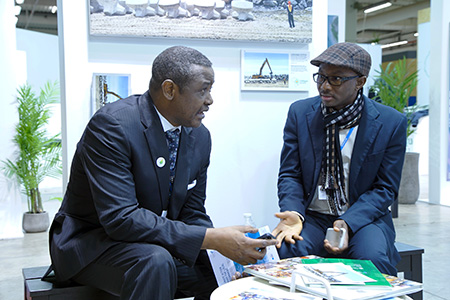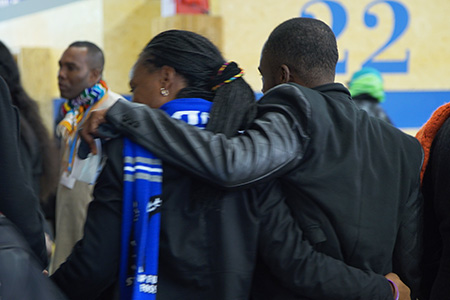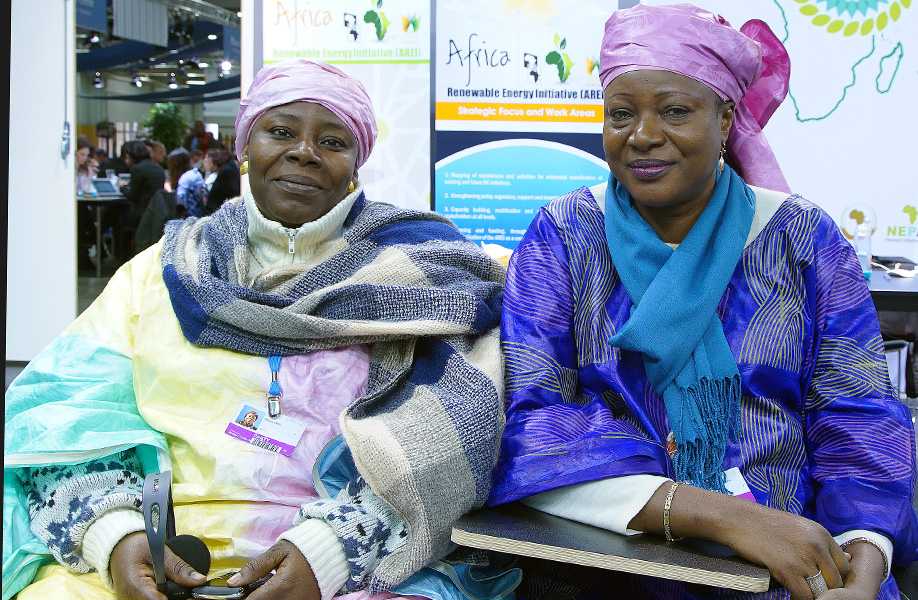This session focused on the role of African youth on climate change issues in Africa, and showcased the African ClimDev Youth Platform (ACLYP). James Murombedzi, Senior Climate Governance Expert, UNECA, introduced the session and invited members of the ACLYP to share the work they’ve been doing.
Ibrahim Ceesay, Co-coordinator, AYICC, noted the importance of youth in making progress for the future of the planet and its people. He outlined the various international meetings that ACLYP members have participated in, including the Third World Conference on Disaster Risk Reduction in Sendai, Japan, the UN Sustainable Development Summit held in New York in September 2015 and now UNFCCC COP 21 in Paris.
Nahom Zeleke, Co-founder, Addis Sustainable Life, Inc., talked about the draft position that African youth developed for COP 21 working with the Horn of Africa Regional Environment Centre and Network. Ampaire Yvette, Executive Director, African Women Initiative on Climate Change, discussed youth involvement in the Africa Climate Talks that took place in Dar Es Salaam in November and noted youth were able to actively participate in high level panels. Nahom Zeleke said the ACLYP is important for bringing youth “from the sideline to the frontline.” Following these introductory presentations, Ibrahim Ceesay screened a short video that elucidated the demands of African youth at COP 21 including the need for a legally binding agreement and for climate justice.
Fatoumatta Ndure, Head of Secretariat, AYICC, said that African youth have proven their potential in promoting and implementing climate change projects and policies. She lamented that youth are often locked out of decision making processes.
Fatima Denton, Director, Special Initiatives Division, UNECA, said it is essential to “kill the narrative of negativity” around youth. Given current demographic trends, she said, African youth are poised to become the custodians of the world. She said it is important that youth are not limited to advocacy but that they engage with opportunities in the energy, agriculture and forestry sectors for sustainable development.
Kumi Naidoo, Executive Director, Greenpeace International, called for and end to the disastrous, negative language that is used to describe Africa in global spaces by outsiders. He said it is essential to bring down the age profile of governing institutions so that young people move into leadership roles immediately.
Sena Alouka, Young Volunteers for Environment, Togo, talked about the rapid development of youth platforms in Africa since 2005 and how they serve as an example for youth movements worldwide. He said the best actions and interventions happen in places where youth take the lead. He noted that even small investments have tremendous impact when given to youth organizations working on environmental issues.
Seth Osafo, former Senior Legal Advisor, UNFCCC, described how in the past African youth were not involved at all in the UNFCCC process. He urged youth participation so that they can develop the capacity to take up leadership roles within the UN and other international organizations. He highlighted UNECA’s Young African Lawyers (YAL) programme as a “real example of capacity building.”
Anthony Nyong, Manager, Compliance and Safeguards Division, AfDB, underscored the importance of entrepreneurship because it can break the cycle of poverty. He highlighted AfDB’s Young Professionals Programme (YPP) saying “success without succession cannot be sustainable.”
Alieu K. Jammeh, Minister of Youth and Sports, The Gambia, said the realities of climate change are already being experienced in Africa. He said that The Gambia has put in place a new government program to address the triple challenges of youth unemployment, climate change and food security.
Tumusiime Rhoda Peace, Commissioner for Rural Economy and Agriculture, African Union Commission (AUC), said the AUC’s 2063 Agenda prioritizes young people because they are of strategic importance for the development of the African continent. She underscored the need to empower young people through supportive leadership that includes youth in policies, strategies and budgets.
Youth from the audience spoke about: the need for a specific climate fund for youth; the green economy and low carbon development; youth leadership in small island developing states; and corporate exploitation in Africa, among others. |


